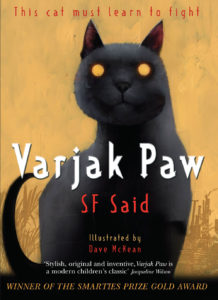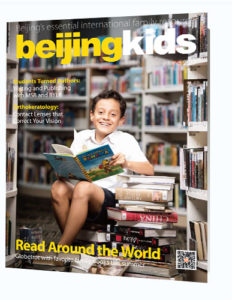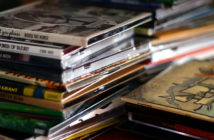 “What makes a good book?” I ask my boys.
“What makes a good book?” I ask my boys.
“That’s easy,” they say. “Excitement, romance, suspense, and it has to have a happy ending.”
“Well, that’s a very – wait a minute. Romance? Since when did you two care about romance?”
On further investigation, it turns out they’re quoting Jake the Dog from Adventure Time.
I wouldn’t want you to think though that my kids aren’t into books. In fact they’re voracious readers, tearing through piles of fat novels at an alarming rate. We are grateful for their school library for enabling us to feed this insatiable hunger, or we might struggle in a city where new English language books can be rare and expensive.
Like all parents I worry about what my children are reading. Perhaps I worry more since I’m a writer, with many writers among my friends and family. (Watch out for the forthcoming debut YA novel from Matt Killeen, my amazingly talented little brother! End of plug.) I’m currently venturing into writing for children myself, though my first effort was brilliantly damned with faint praise by Noah.
“This is just the sort of book,” he said, “which I would love, if I didn’t have anything else to read.”
There is some fine writing in the world of children’s fiction. Andy Stanton’s anarchic Mr. Gum novels have some of the funniest prose I’ve read anywhere; SF Said’s Varjak Paw and Phoenix are modern classics. Others, though, grieve me as a craftsman. The Beast Quest series, its formulaic plots determined by committee and hacked out by paid-by-the-word journeymen under the implausible pseudonym of Adam Blade, I find hard to stomach.
However I try to resist the temptation to carp. In Diary of a Wimpy Kid, there’s a cautionary episode in which our hapless hero Greg’s mother starts a “Reading is Fun” club. Greg’s friends turn up with what they like to read: comics, video game guides, books of amazing facts… She condemns them all as not “proper” reading, and insists that they read classics instead.
Greg defines a classic as “a book written a long time ago in which someone or something dies,” and his mother’s choice of Charlotte’s Web ticks all those boxes. One by one his friends drop out, until the club is represented by a picture of Greg glumly scanning the book while his mother watches over him with a timer, under a huge banner which proclaims: “READING IS FUN.”
Of course I recommend novels to my children which I enjoyed, and we share books together. Noah is now 11, but I still read to him at bedtime. We share and discuss older books which he might struggle with on his own, like Sherlock Holmes, but neither of us is prepared to give up that special time yet.
On the whole though, I try not to interfere. Left to their own devices, children will read a huge range of books, including both trash and treasure. But they will seek out quality for themselves, at a pace that suits them. And they will move towards adult literature too at their own pace, even if at times they go back to favorites which now seem insultingly simple; and they will self-censor things which disturb or frighten them. It’s one of the wonders of the written word that it’s a place where, unlike the internet, TV and film, and the real world itself, they can be left to wander and explore more or less unsupervised.
About the Writer
Andrew Killeen is a novelist and creative writing teacher. Originally from Birmingham, England, he studied at Cambridge University and now lives in Beijing with his wife and two lively boys, Noah (age 10) and Joseph (age 7). In between he was at various times a DJ, festival director, positive parenting practitioner, and homeless support worker. His critically acclaimed historical novels are available from Dedalus Books.

Download the digital copy here.




